Toyota Taisor Turbo vs Hyundai Venue N Line comparison
Toyota’s newest crossover takes on the sporty Hyundai Venue N Line.
Published on Jul 18, 2024 03:35:00 PM
37,871 Views
Follow us on

Venue’s boot is larger; usable cargo space is similar.

Upright dash, boxy cabin and raised seating make the Venue more SUV-like behind the wheel.
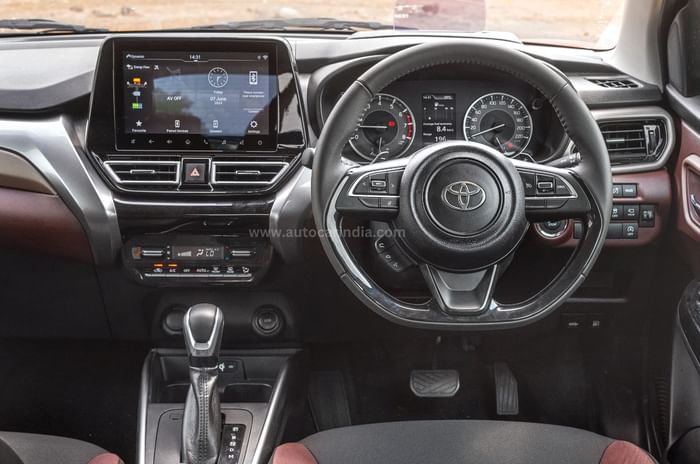
The Taisor's layered dash and a relatively lower driving position feel sportier.
In a populated space like the compact crossover segment, buyers looking for a standout offering that’s stylish and engaging to drive are likely to consider the Hyundai Venue N Line. For them, now there’s an all-new offering from the house of Toyota in the shape of the Maruti Fronx-based Urban Cruiser Taisor.
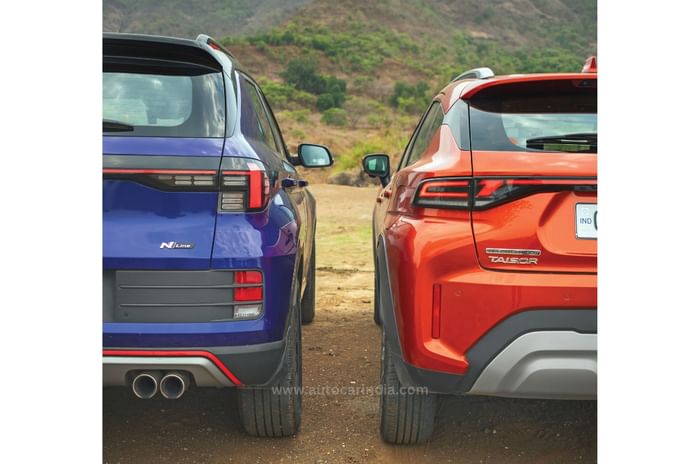
Both these cars are powered by 1.0-litre turbo-petrol engines, and like their standard (popular) versions, these are practical and feature-loaded, too. Their ex-showroom prices are also similar. For this comparison, we’ve considered the fully loaded Toyota Taisor Turbo V AT that costs Rs 12.88 lakh and the mid-spec Hyundai Venue N Line N6 DCT variant that’s priced at Rs 12.87 lakh (our test car with a dual tone costs Rs 15,000 more). Notably, the Venue N Line’s top variant (N8), with autonomous driver assistance systems (ADAS) being the biggest addition, is available at a premium of Rs 88,000 over the N6; so if ADAS is on your must-have list, it is the one to go for; otherwise, the N6 will do just fine.
Toyota Taisor Turbo vs Hyundai Venue N Line: exterior
Between the two, the Venue’s taller stature has more of that SUV vibe. Its bronze-coloured block-patterned grille looks more imposing, and N Line-specific red highlights and twin exhaust tips add a touch of sportiness. The Toyota Taisor’sprofile is relatively sleeker, and its coupe-like sloping roofline comes across as a jacked-up hatchback (which it is). But there isn’t a doubt that the Taisor is a good-looking crossover, with Toyota-specific styling cues reflected in its design.
| Hyundai Venue Price, Mileage, Specifications, Features and Variants | |
|---|---|
| Brand | Hyundai |
| Model Name | Venue |
| Hyundai Venue Price | ₹ 9.01 - 16.20 lakh |
| Hyundai Venue Range/Mileage | Petrol : 17.52 - 18.27kpl | Diesel : 24.2kpl |
| Hyundai Venue Specifications | SUV | 5 doors | 5 seats View All Specs |
| Hyundai Venue Features | LED headlight | 8-inch Touchscreen display | 6 airbags View All Features |
| Hyundai Venue Variants | 1.2 Petrol E MT | 1.2 Petrol S MT | 1.2 Petrol S (O) MT View All Variants |
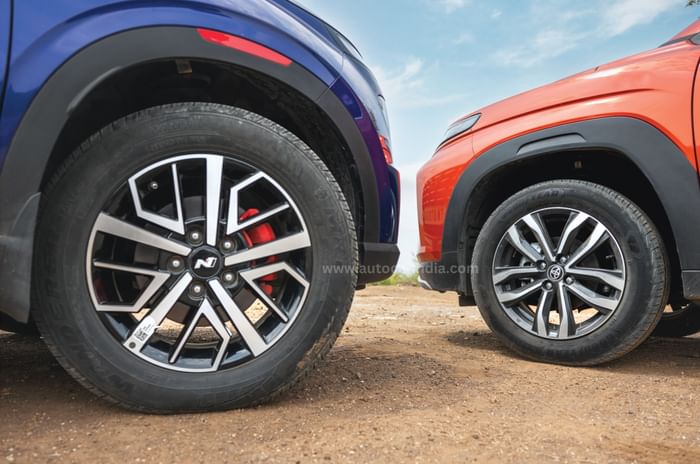
Toyota Taisor Turbo vs Hyundai Venue N Line: interior
The Venue’s SUV theme carries forward on the inside as well—its upright cabin facilitates ingress and egress; users will appreciate the fact that the bonnet is in the driver’s field of vision; and, with its dashboard pushed all the way to the front, its boxy cabin enhances the sense of space. It also gets a sunroof for an airy ambience. Sporty additions like the N Line steering, metal pedals and leather-wrapped gear selector feel special. The Venue’s seats are broad and comfortable, and at the rear, the backrest reclines in two steps.
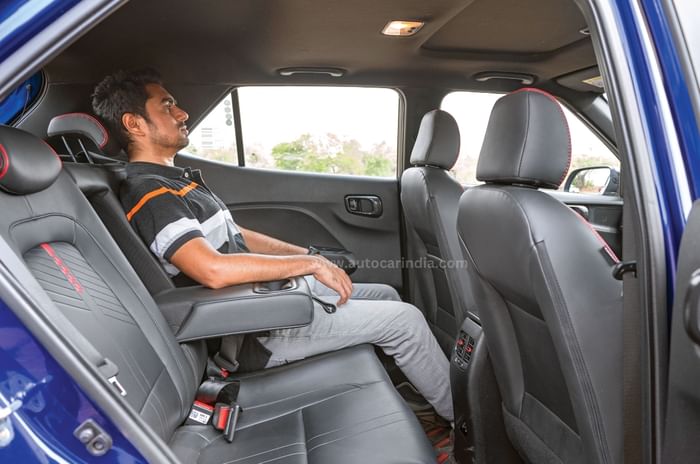
In comparison, the Taisor’s cabin feels snug due to a raked windscreen, a layered dashboard that protrudes into the cabin and comparatively less headroom. Its front seats are nicely contoured, and while its soft cushioning is comfy for short distances, on longer drives, it could induce body aches. The Taisor’s rear seat is comfy, too, and there are three adjustable headrests. However, headroom for six-footers is tight, and it misses a centre armrest.
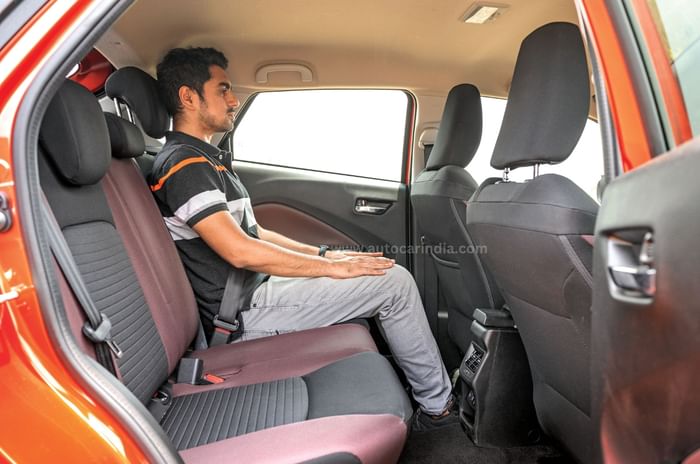
On paper, the Venue N Line has a more voluminous 350-litre boot, but an angled rear seat makes it difficult to stack luggage. As a result, usable space is similar to the Taisor’s 308-litre boot.
Toyota Taisor Turbo vs Hyundai Venue N Line: features
Hyundai has loaded the Venue N Line N6 variant with in-vogue features such as a sunroof, a digital instrument cluster, a dash camera and drive modes. Features unique to the Taisor are a heads-up display, wireless Android Auto and Apple CarPlay and a 360-degree camera. Both cars pack in features like paddle shifters, auto LED headlamps, 16-inch alloys, wireless charging, six airbags, and ESP, among others.

Toyota Taisor Turbo vs Hyundai Venue N Line: performance
The Venue N Line shares its 120hp, 1.0-litre, three-cylinder turbo-petrol and 7-speed dual-clutch automatic transmission with the standard version. At city speeds, there is a noticeable lag before the boost comes in, and the gearbox feels a bit hesitant. The engine gets into its element only when spun beyond 2,000rpm, and performance thereon is enjoyable. Not only does it spin faster than the Taisor’s, but it also pulls strongly. The N Line-specific sportier exhaust burble adds some drama, which is more audible on the outside. However, at higher revs, the three-cylinder’s thrum overshadows its exhaust note. That said, in this company, the Hyundai is more refined on account of a better-insulated cabin.
Despite being down on outright power and torque, the Taisor’s 100hp, 1.0-litre, three-cylinder turbo-petrol engine outperforms the Hyundai’s on account of its smoother and more linear power delivery as well as the Toyota’s 140kg lower kerb weight. Its six-speed torque converter complements the engine nicely masking any lag. This powertrain feels eager and quite sporty, and because it spins freely and quickly, its 6,000rpm redline feels rather conservative.
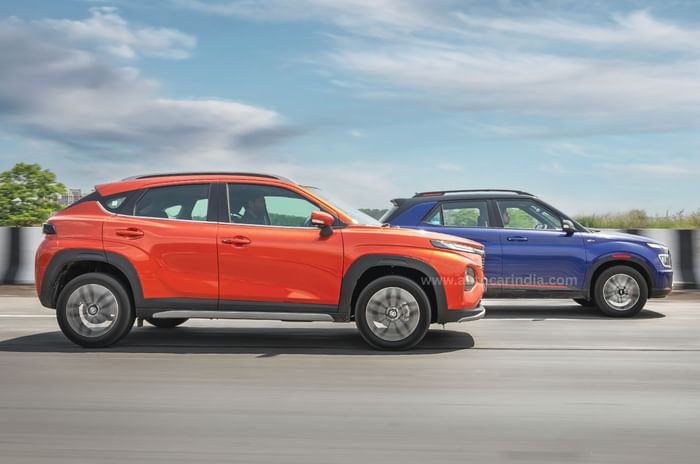
In a sprint to 100kph from a standstill, the Toyota out-drags the Venue N Line on account of a more forceful launch, resulting in a time of 11.86 seconds, 0.4 seconds quicker than the Hyundai. In the roll-ons, both cars perform similarly when accelerating from 20 to 80kph. However, the Venue N Line’s hesitant (to downshift) gearbox makes it 0.76 seconds slower in a 40-100kph race.
In line with the N Line’s sportier pretence, the suspension damping force is around thirty percent firmer than the regular Venue, and as a result, its chassis feels tighter and stiffer than the standard car. It does have an edge when it comes to handling, but its ride feels quite busy at all times. While neither has a particularly comfortable or plush low-speed ride, the Taisor does a relatively better job of soaking in the road shocks at low speeds. Its high-speed stability is noticeably better, and it feels settled at triple-digit speeds. The Toyota corners with confidence, too, and feels nearly as engaging as the N Line when driven in a spirited manner.
Toyota Taisor Turbo vs Hyundai Venue N Line: verdict
Those looking for an ‘SUV’ feel would likely gravitate towards the Hyundai Venue simply for its upright stance and high seating. The N Line treatment makes it feel more special, and it also packs in a sunroof and a dash camera which are a hit among buyers.
Even though the Taisor misses out on these, it is well-equipped. More importantly, the Taisor’s performance is smoother and stronger; besides having a less jerky gearbox, its ride comfort and high-speed stability are also better. It is engaging to drive as well, and all that makes it a winner in this comparison test.
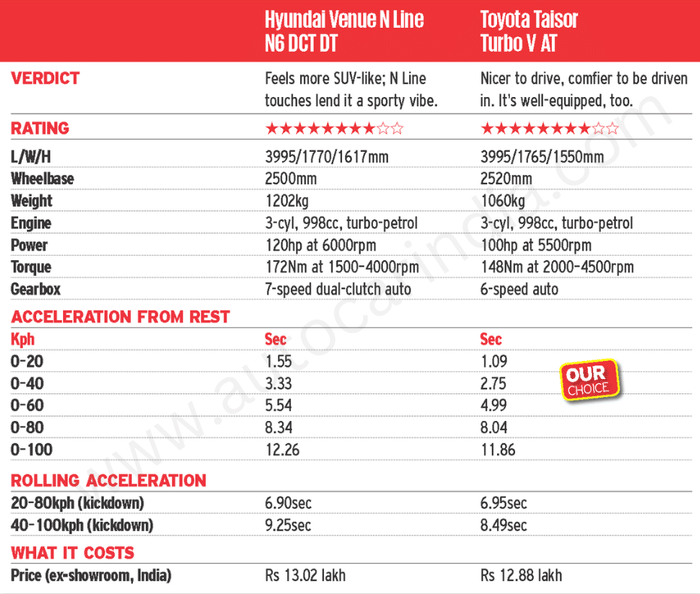
Also see:
Hyundai Venue N Line vs Toyota Taisor comparison video
Toyota Taisor turbo comprises 45 percent of all bookings
Hyundai readying Fronx rival for 2026 launch
Copyright (c) Autocar India. All rights reserved.


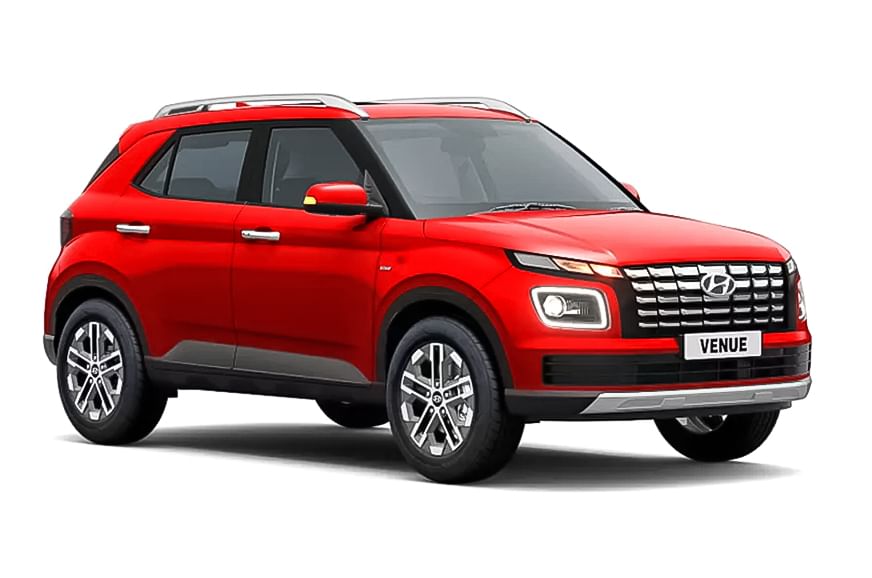






Comments
Member Login
Personal Details
No comments yet. Be the first to comment.